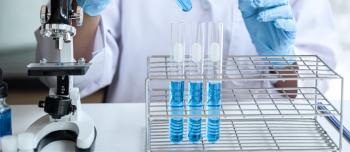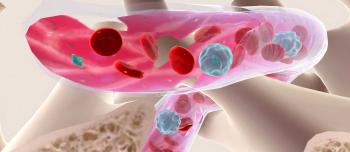Spark Therapeutics recently announced updates from an ongoing phase 1/2 clinical trial of SPK-8011, the company’s investigational gene therapy candidate for hemophilia A. Administered via a one-time intravenous infusion, SPK-8011 is designed to elicit the production of therapeutic levels of factor VIII (FVIII), a protein that is typically deficient in individuals with hemophilia A.
Spark’s proprietary bioengineered adeno-associated virus (AAV) vectors carry the genetic codes that help generate FVIII. The approach being tested in this trial uses a modified novel AAV vector genome (vg) to deliver the corrected FVIII gene into liver cells where the protein is normally generated.
According to a new Spark press release, a total of 18 participants in the trial have received a single administration of SPK-8011 in four dose groups, ranging from 5×10 vg/per kilogram body weight (vg/kg) 11 to 2×1012 vg/kg. In the 16 patients with sustained FVIII expression, there was a 91.2% reduction in annualized bleed rate and 97% reduction in annualized FVIII infusion rate post-treatment with SPK-8011.
The release also included a safety update. To date, no deaths and no FVIII inhibitor development has been reported. More specifically, Spark reports that two of the 17 participants with over one year of data lost FVIII expression due to a presumed cellular immune response to the AAV capsid (the protein shell of the AAV) that was unresponsive to immunosuppression.
Seven participants reported transient, asymptomatic liver function test (LFT) elevations, all of which were mild or moderate and subsequently resolved. One participant experienced a mild to moderate acute infusion reaction, which presented as four nonserious adverse events (AEs) (pyrexia, myalgia, vomiting, and back pain) and were resolved. One participant experienced transaminitis (elevated liver enzymes), which resulted in elective hospitalization for IV steroid administration, a serious AE that was resolved.
“We are encouraged by the results from the phase 1/2 trial for investigational SPK-8011, which has been evaluated in the largest phase 1/2 gene therapy trial in this disease to date, and demonstrates continued response over time, a critical measure of a therapy’s potential to transform lives for people living with this chronic condition,” said Gallia Levy, MD, PhD, Chief Medical Officer, Spark Therapeutics. “We remain focused on optimizing the dose and immunomodulatory regimen in the phase 1/2 study and look forward to continuing our evaluation of this therapy in a Phase 3 study.”
Source: Spark press release dated July 21, 2021





